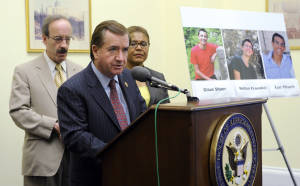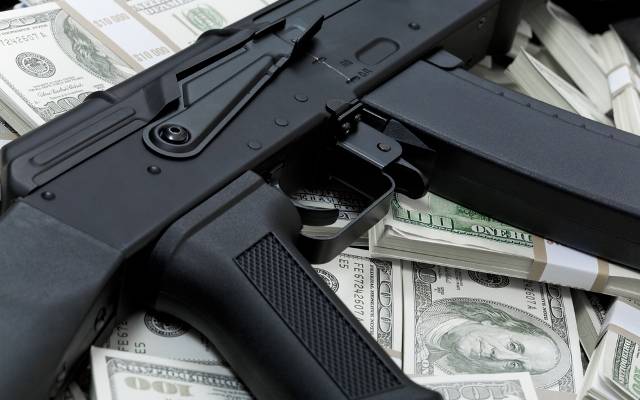The world’s major economies on Friday suspended anti-money laundering measures against Iran for a year despite concerns that the Islamic Republic uses its financial sector to protect criminal enterprises and fund terrorist activity.
The announcement is another sign of progress in Tehran’s campaign to return to the global economy after last year’s controversial nuclear accord.
At a meeting in South Korea, the United States and the 36 other members of the Financial Action Task Force (FATF) welcomed Iran’s commitment to address shortcomings in how it tackles money laundering and fights terrorism financing. The Iranians also are seeking technical assistance in their efforts.
This commitment is odd, as Iran itself is blacklisted as the world’s leading state sponsor of terrorism.
To protect the international financial system, FATF members are supposed to apply countermeasures against any country on the organization’s blacklist. The body, which meets three times a year, said banks should continue applying due diligence in business relationships and transactions with Iranian individuals.
Sanctions Can Return in a Year
If Iran fails to make progress over the next 12 months, “FATF’s call for counter-measures will be re-imposed,” it said in a statement. “If Iran meets its commitments under the action plan in that time period, the FATF will consider next steps.”
The FATF urged Iran to fully address its deficiencies, “in particular those related to terrorist financing.”
Friday’s move will alarm some opponents of the Iran nuclear deal in the United States.
The seven-nation agreement promised Iran significant relief from financial, trade and oil sanctions in exchange for steps to curtail a program that many Western countries feared was close to nuclear weapons capability. Iran has adhered to its commitments thus far, according to the UN nuclear agency, but Republican and other critics say the US shouldn’t be doing anything more than it is required under the agreement.

Rep. Ed Royce. (AP/Susan Walsh)
In a letter to Treasury Secretary Jack Lew last week, Rep. Ed Royce, the House Foreign Affairs Committee chairman, urged the Obama administration to fight to keep Iran remained on the blacklist. He said Iran’s support for terrorism continues. That State Department upheld that conclusion, too, in its latest terrorism report. Iran also is backing Syrian President Bashar Assad’s government in its civil war with US-backed and Arab-backed rebel groups.
“Hezbollah, Iran’s leading terrorist proxy, is currently playing a central role in Iran’s effort to prop up the murderous Assad regime in Syria,” Royce wrote. “This US designated ‘Foreign Terrorist Organization’ also has tens of thousands of rockets pointed at Israel.”
Tyler Cullis, legal fellow at the National Iranian American Council, hailed the FATF’s decision as recognition of improvements in Iran’s banking sector.
But Mark Dubowitz, an Iran sanctions expert at the Washington-based Foundation for Defense of Democracies, played down the practical effects of the change. “Global financial institutions understand that this illicit conduct, not empty expressions of intent, must be changed before risking business with Iran,” he said.
American officials said Friday’s announcement in Busan, South Korea, has no effect on the US government’s Iran-related sanctions.
Also Friday, the FATF maintained its call for financial institutions to apply countermeasures on North Korea and uphold UN Security Council sanctions against the communist government. It cited the threat posed by North Korea’s “illicit activities related to the proliferation of weapons of mass destruction and its financing.”
By: AP
